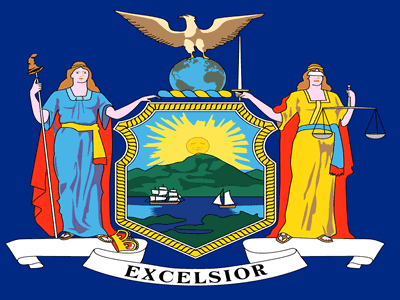Earlier this year, Assemblyman Gary Pretlow introduced A9049, which would classify Texas Hold’em and Omaha poker as games of skill, rather than games of chance. Because New York’s current legislation only covers games of chance, this bill would allow those two games to circumnavigate those laws. The bill was then sent to the Racing and Wagering Committee, where Pretlow is the chairman. However, the bill sat untouched in the committee until it was too late for it to be discussed on the Assembly floor.
While A9049 was being introduced, Senator John Bonacic attempted to introduce a similar bill in the Senate. The bill, S5302, also classified specific types of poker as a game of skill and was passed through both the Gaming and Wagering Committee as well as the Senate Finance Committee without much issue. Despite the fact that the Senate voted the bill through with a 53-5 majority, its passage is irrelevant without progress on the Assembly’s version of the bill.
Why the Assembly Bill Died
There were brief hopes that A9049 would get tacked onto an Omnibus bill that absolutely had to pass. Instead of allowing this, though, Pretlow chose to pass another bill he had drafted regarding regulation of Daily Fantasy Sports. Though nobody is sure why he shifted focus so abruptly, there was speculation that the new bill was given more importance due to the large volume of DFS players in the state.
This speculation didn’t last long, though. In an interview with Assemblyman Pretlow not long after, he stated that the real reason he did not advance his own bill to the floor is because he does not actually believe that poker is a game of skill.
Yes, the Assemblyman is contradicting his own previously stated opinion as well as completely contradicting the bill that he drafted. When asked for the reason behind this change, his explanation left observers with more questions than answers:
“When you’re gambling, there’s a bet, and if you change the bet the odds change based on who is betting. That’s gambling. In DFS, you pay an entry fee — $5 or $10, or whatever — and you’re locked in. You can’t change it. Even though the house takes a percentage of the overall pool, whatever is in the prize pool is the prize. You know what the prize is before you get in it. In poker, you’re betting and you’re changing the bet by raising. That’s gambling. In my legislative finding, I found DFS is not gambling. I can’t find that poker is not gambling.”
Mental Gymnastics Galore
To say that Pretlow was performing mental gymnastics to reach the conclusion above would be an understatement. His “logic” shows a fundamental lack of understanding in regards to gambling, online poker and the meaning of the word logic, it seems. In fact, when asked about the Senate’s easy passage of its companion bill, S5302, his response was, at best, completely absurd and circular:
“In many cases, [the Senate doesn’t] look through things as closely as the Assembly does. I personally don’t think the skill vs. chance argument is a problem, but people in a more legal area think it’s a problem. I think the overall feeling is poker is a game of skill…”
This confusing non-answer essentially passes the blame onto some nebulous group of “people in a more legal area,” whatever that means. He also went on to voice concerns about cheating and collusion, saying that he “doesn’t trust” the sophisticated algorithms online gambling providers have in place, yet again making it painfully clear that he has no idea how poker, or the Internet, actually work.
Will This Flawed Logic Hurt Future Online Poker Legislation?
The 2016 legislative session for New York is over, and the 2017 session doesn’t meet until the beginning of January. In spite of the Assembly’s current issues with online poker, Pretlow has expressed confidence in the passage of 2017 legislation to legalize online online poker in New York.
Hopefully he’s more knowledgeable about the Assembly’s inner workings than he is about online poker, otherwise there really is no hope for future regulations to be passed.

